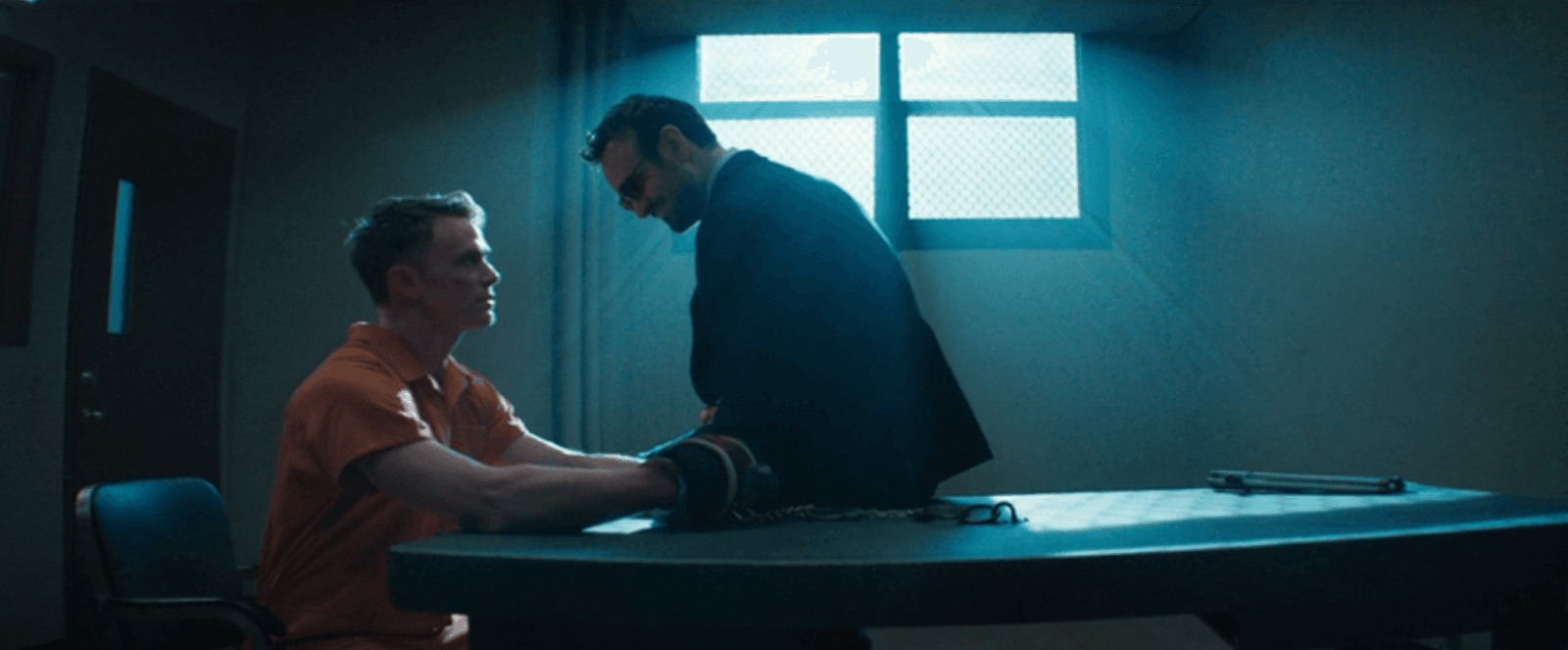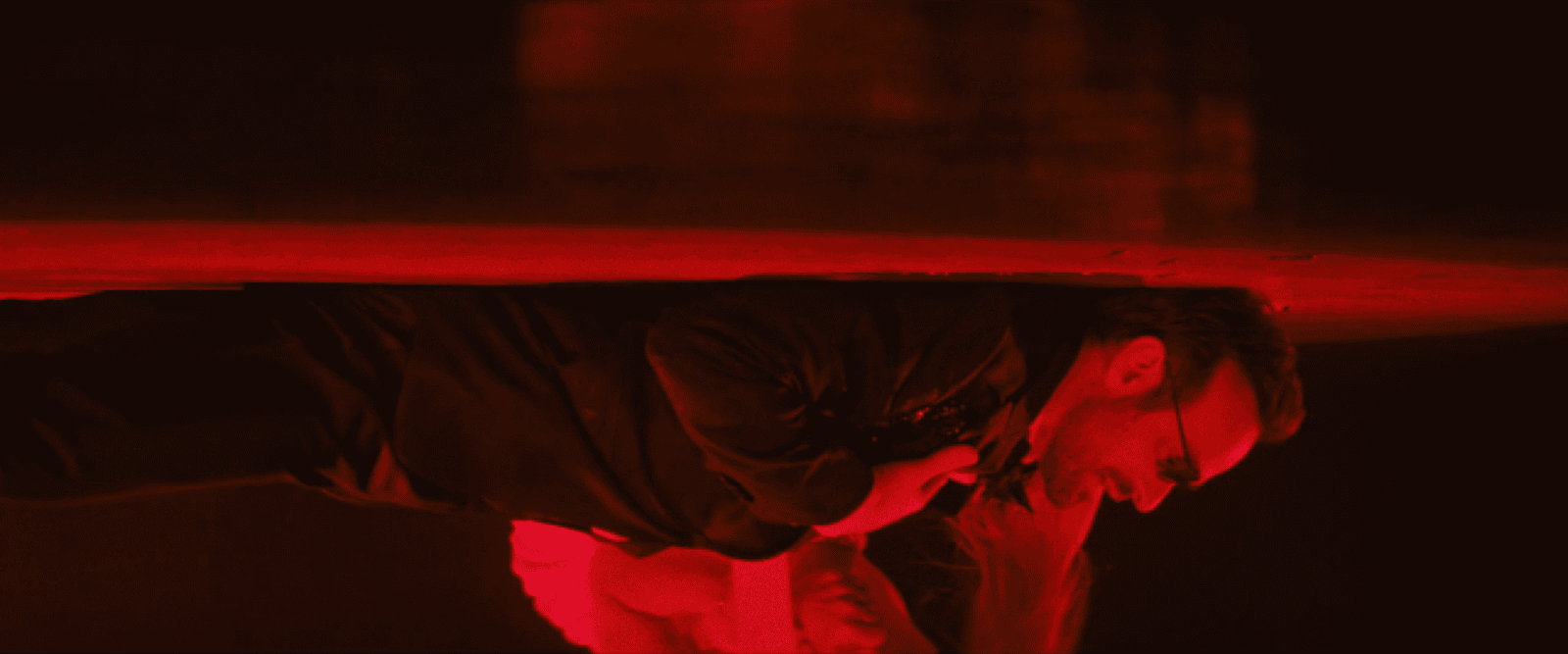
Daredevil: Born Again has been uneven in its first season, but that might have been inevitable given its chaotic production process.
When the 2023 writers strike brought production on Born Again to a halt, Marvel Studios realized that the six episodes that had been shot weren’t working—so Marvel decided to dismiss head writers Chris Ord and Matt Corman and the directors for the remainder of the season. The studio eventually brought in Dario Scardapane (Netflix’s The Punisher) as showrunner, along with filmmaking duo Aaron Moorhead and Justin Benson (Moon Knight, Loki) as directors, to lead the creative overhaul of the series. But as Scardapane explained in an interview with Collider in March, “quite a bit” of Ord and Corman’s original material made the final cut.
“[Marvel] had that time during the strike to take a look at what they had, and those six episodes were super solid,” Scardapane said. “They were super solid, but the issue was bringing up the themes and feelings that we loved from the old [Netflix] show and context.”
Scardapane and his team filmed essentially three episodes of additional material when production resumed, as well as interstitial material to be woven into the existing six episodes. After Born Again began with an action-packed premiere—using new material directed by Moorhead and Benson—that featured Bullseye killing Foggy Nelson before the opening credits sequence, the subsequent six installments displayed the remnants of Ord and Corman’s vision of the series. Much of it worked very well, and much of it didn’t. For better or worse, there was hardly any trace of Netflix’s Daredevil during that stretch, or even Matt Murdock in his actual role as Daredevil.
In this week’s episode, “Isle of Joy,” Born Again circles back around to using the new material from Scardapane’s vision of the series, with Moorhead and Benson returning to the helm as well. Just as Scardapane and Co. used Bullseye to jump-start the story, the Daredevil villain has reemerged to help conclude the first season, as the new creative team invokes the memory of the original Netflix show to push Born Again across the finish line.
As Born Again switches up its process for the penultimate episode of Season 1, we’ll follow suit and alter our recap format this time around. After covering the main events of Episode 8, as usual, we’ll break down some of the noticeable differences in the show as Scardapane’s vision comes back into focus.
The Brief

“Isle of Joy” opens with a striking image of a beautiful blue rose, and then the camera pulls back to reveal that we’re looking at the flower from Benjamin Poindexter’s vantage point in his prison cell. Bullseye has been locked up in protective custody ever since he murdered Foggy, but now he’s joining the general population of the prison. As we later learn from Kirsten McDuffie, this change was made by Mayor Fisk.
After Heather Glenn’s traumatic encounter with Muse in last week’s episode, her relationship with Matt is rockier than ever. Tensions are rising between them as Heather’s disdain for vigilantes grows, and her boyfriend can’t resist defending Daredevil from her harsh criticism. Heather’s recent experience will surely be a rich source of material for her new book about vigilante personas, but her stance against masked individuals is making it increasingly difficult for Murdock to reveal his big secret to her—and more unlikely that he ever will. Their conflict only intensifies when Wilson Fisk’s right-hand man, Buck Cashman, stops by Matt’s apartment to give Heather an invitation to a gala that Fisk is hosting, which raises Murdock’s suspicions about her connection to the mayor and whether she’s taken him on as a client.
Matt’s work life isn’t doing much better than his crumbling personal life. His legal partnership with Kirsten is about as strained as his romantic relationship, especially after Murdock disrespects a new client in a meeting. When Kirsten reprimands him after the outburst and confronts him about his erratic behavior in general, Matt admits that he’s lost faith in the system their law firm has been fighting to uphold. “We’re not serving justice here, you know. We’re babysitting chaos,” he says.
Murdock has hit a rough patch in life, but things couldn’t be going much better for Fisk. Since forming his anti-vigilante task force, so-called “vigilante crime” is down 30 percent in the city. Fisk has assumed control of the media narrative surrounding his bold initiative, after his assistant Daniel Blake pressured journalist BB Urich on last week’s episode to amend her reporting about Daredevil’s involvement in the takedown of Muse. (As a result, the young Tony Soprano has been promoted to deputy mayor for communications.) More importantly, the funding for Fisk’s Red Hook port project is finally coming together, which serves as the impetus for the black-tie gala at the center of “Isle of Joy.”
However, before Fisk celebrates his latest win at the lavish event, he unearths the secret he’s kept from Vanessa throughout the season: Adam’s captivity. Wilson brings his wife to where he’s been keeping her former lover and confesses to what he’s done. (Fisk justifies himself by stating, “I am better than I was,” which is a remarkable thing to say as his prisoner pleads for his life mere feet away.) He gives Vanessa the choice of a key or a gun: to free Adam or kill him. And she chooses the latter, shooting Adam herself. As Vanessa later tells Heather, their marriage counselor, at the ball, the Fisks no longer require her services, as “the sins of the past are dead and buried” for both her and her husband.
As Murdock wallows around his old stomping grounds in Hell’s Kitchen, reflecting on the news of Poindexter’s move and subsequent request to meet with him, he finds himself back at Josie’s Bar—a staple of the original Netflix series that’s been absent from Born Again since the premiere’s explosive opening. Following Poindexter’s attack, Josie closed up shop, and her bar is now a sad shadow of what used to be a boozy sanctuary for Murdock and his closest friends. Josie invites him in for a drink all the same, and they’re soon joined by Cherry, who had been keeping an eye on Murdock at Kirsten’s request.
It’s here that Matt has an epiphany in response to something Josie says about Foggy’s drink of choice on the night he died. He realizes that his old friend had been prematurely celebrating a victory on a case, which depended only on the forthcoming testimony of his star witness—so somebody wanted Foggy silenced.
After this realization, Murdock finally pays Poindexter that visit in prison. He presses Bullseye to explain why he murdered Foggy that night, why Fisk wanted to move Poindexter out of protective custody (thereby putting his life at risk), and whether those two questions lead to the same conclusion: that Fisk hired Poindexter to kill Foggy. When Poindexter refuses to provide any answers, Murdock repeatedly slams his head into the table, then tells the guards that Poindexter did it himself. His brutality plays right into Poindexter’s hands.
The violent encounter takes quite a toll on Poindexter’s face, so he’s later sent to get medical attention. Poindexter uses this sliver of freedom as a means of escape, ripping out his own tooth and spitting it with extreme force into a guard’s eye before unlocking his restraints and finishing off the guard and the nearby doctor by hurling medical equipment at them. Wearing the fallen guard’s uniform, he walks right out of prison and makes his way to Fisk’s gala to exact his revenge.
At the Black and White Ball, the majority of the show’s central and supporting characters convene for an opulent display of Fisk’s growing influence. Fisk has managed to intimidate the city’s elite class—including Jack Duquesne, the Swordsman—into investing in his Red Hook revitalization effort by pulling them into a separate room to coerce them one by one. NYPD commissioner Gallo tries and fails to stop Officer Powell from assaulting a waiter for sneaking a photo of Fisk, witnessing firsthand how powerless even he has become in holding Fisk’s shady task force accountable. And Urich continues to play nice with her friend in the mayor’s office, Daniel Blake, while also later revealing to Gallo that her media persona is something of a mask of her own. Urich posts other stories under a different pseudonym, which she’s preparing to use to take down Fisk.
The night really livens up when Murdock arrives fashionably late, much to Heather’s frustration. Matt may have left his other suit at home, but that doesn’t stop him from making his move against the Fisks. He tries to convince Heather once and for all that Wilson is a monster who’s trying to exploit her, and he’s willing to confront Fisk on the spot to prove it to her. He’s become bolder, and he’s seemingly unafraid to compromise his secret identity—which the Fisks are well aware of—if it means showing Fisk’s true colors.
The stakes rise as Bullseye shows up and positions himself to take his shot at Fisk. Matt overhears Vanessa tell her husband that she has something she needs to tell him—and Murdock suddenly understands Vanessa’s role in the bigger picture. “I know it was you,” Matt says as he cuts into her dance with Fisk. “I know you had Foggy killed. … You see, I know it was you; I just don’t know why.”
“I have no idea what you’re talking about,” Vanessa responds.
“Yes, you do,” Matt says. “What about your husband? Does he know? Does he know you had Foggy killed?”
“Does Heather know you’re Daredevil?” Vanessa asks in return.
Before any resolution can come from Murdock’s line of questioning, he hears Bullseye loading his sniper rifle in the distance, and he steps in front of Fisk just in time to take the bullet for him. As Fisk, covered in Murdock’s blood, lays his rival’s body on the floor, the crowd scatters, and Heather falls to her boyfriend’s side. With the soundtrack blaring, the spotlight on Murdock changes color to red as the episode comes to an end.
After Murdock’s and Fisk’s story lines ran parallel to each other over the past six episodes, the journeys of these Hell’s Kitchen rivals are crossing once again, just in time for next week’s season finale.
Netflix’s Daredevil and Other Shifts in Born Again

The creative team behind Born Again has made an admirable effort to mask the show’s messy production process. However, the changes from its original conception to the new approach under Scardapane can still be seen. The most glaring alteration is the increased connection to the original Daredevil series in Scardapane’s episodes, but there’s also a noticeable difference in visual style.
Born Again has some consistency in its director of photography, Hillary Fyfe Spera, who shot seven of the nine episodes in Season 1, including “Isle of Joy.” (The other two, Episodes 4 and 5, were shot by cinematographer Pedro Gómez Millán.) But the series premiere, “Isle of Joy,” and the upcoming season finale were all helmed by Moorhead and Benson, and there have been some interesting filmmaking choices in the two episodes of theirs that we’ve seen thus far.
For one, there’s an emphasis on bold colors being associated with individual characters, namely Poindexter and Murdock. In Episode 8, Poindexter has his own color motif, as the screen is enveloped in dark blue as it switches to his unique (and violent) perspective. And much as Episode 1 ended with a blinking red light on Murdock’s face, “Isle of Joy” closes with a red spotlight cast on Murdock. These color choices may be a bit on the nose, with blue and red reflecting the colors of their respective costumes, but the lack of subtlety feels appropriate for a universe full of superheroes. Similarly, the series’ aspect ratio changes when Matt uses his heightened sense of hearing to listen in on Bullseye loading his rifle in the distance, just as it did in the premiere when Murdock zeroes in on Foggy speaking on the phone in another room.
Episode 8 also features another long take, which has been something of a trend on TV this spring. In honor of Netflix’s Daredevil, Born Again used a continuous shot for its opening action sequence in the premiere—even if its overuse of (bad) CGI created an unfortunate distraction that overshadowed the show’s earnest effort to pay homage to its predecessor. “Isle of Joy” has a different kind of long take, not in the midst of a high-octane fight scene but in the middle of a party. In a room full of attendees at Fisk’s gala, the camera and mic focus on one conversation at a time, moving from one to another without any cuts in between. It might not be as thrilling as watching Daredevil brawl his way through a hall full of enemies, but it’s a fun bit of filmmaking that establishes that all of these conversations are happening concurrently while imparting a sense of the event’s scale.
Creative choices like these are all helping this Disney+ series look and feel distinct from other MCU TV shows that have felt more uniform and sterile from a visual standpoint. More so than any changes in visual style, though, what we see in Episode 8 is the series’ narrative refocusing on its connections to Daredevil’s Netflix lore. Born Again’s past six episodes included small moments that showed how Murdock was still grieving Foggy’s death, but “Isle of Joy” reestablishes that event as the inciting incident for this series.
By bringing back Poindexter as a primary antagonist, looping in Vanessa’s involvement in Foggy’s murder, and even utilizing Josie’s Bar to help reorient Murdock’s sense of self and purpose, Born Again is leaning into its past to raise its present stakes. That decision-making feels emblematic of Marvel Studios’ wider reliance on nostalgia to save the MCU from its recent struggles. But even if Born Again is using a familiar approach to fix a series that wasn’t quite working, Scardapane and Co. have just created some thrilling momentum to carry into next week’s season finale.
